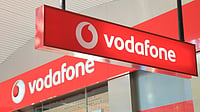Shares of Adani Group companies rallied over 5% on Thursday after Hindenburg Research, the short-seller behind the $100 billion shares sell-off, announced its shutdown.
Adani Group stocks, including Adani Enterprises, Adani Green Energy and Adani Power, jumped up to 5%, while Adani Ports & SEZ, Adani Energy Solutions and Adani Total Gas surged over 4% each. Shares of Ambuja Cement, ACC and NDTV were also up by around 4% in early trading on 16 January.
US-based short-seller’s founder Nate Anderson announced that the company would be disbanded after the team finished the pipeline of ideas they were working on. "And as of the last Ponzi cases we just completed and are sharing with regulators, that day is today," he said.
Founded in 2017, Hindenburg Research gained prominence for exposing alleged corporate fraud and misrepresentation. Its reports accused companies of malpractice, leading to severe market value losses. The shutdown of the short-selling firm boosted sentiment for Adani Group stocks in Thursday’s session.
Why Hindenburg Closed Down?
Anderson’s announcement comes at a politically sensitive time, just before the end of President Biden’s term and the upcoming inauguration of Donald Trump. However, Anderson did not mention a particular reason for the closure of Hindenburg Research.
"There is not one specific thing—no particular threat, no health issue, and no big personal issue." He reflected on his career, adding, "Someone once told me that at a certain point, a successful career becomes a selfish act." "The intensity and focus have led to missing much of the world and the people I care about," he said.
Impact of Hindenburg Allegations on Adani Group
In January 2023, Hindenburg created waves in India for its report on Adani Group, which resulted in substantial losses for the Indian billionaire and his companies. A major chunk of Adani Group’s market value was wiped off following Hindenburg’s accusations. The group’s stocks plummeted by 50%, erasing over $100 billion in market value within just 10 days.
It accused Adani Group of misusing offshore tax havens, which the company denied. The allegations forced the company to withdraw its Rs 20,000 crore follow-on public offer (FPO).
The Adani Group managed to recover much of its stock market losses, with Hindenburg’s claims failing to stand up under scrutiny.
In August last year, the short-seller also targeted Madhabi Puri Buch, chief of India’s market regulator Sebi, and her husband Dhaval Buch, claiming they held stakes in offshore entities linked to the alleged Adani money siphoning scandal. These allegations were based on the documents provided by a whistleblower and other investigations.
While the anticipation was that the new allegations would once again send the group’s stocks into a tailspin, even ten days after the report’s release, Adani Enterprises' stocks dipped only about 3%. Unlike the first Hindenburg report, which disrupted the company’s financial plans, the second one failed to make any significant impact on its valuation and fundraising plans.
Despite the seriousness of the accusations from Hindenburg, Adani and his companies have repeatedly denied all allegations.
In November, US prosecutors announced that Gautam Adani, his nephew Sagar Adani, along with six others, had been indicted in New York over his role in an alleged multibillion-dollar bribery and fraud scheme.
Following a US court's indictment, the total market capitalisation of Adani Group stocks dropped by 6.2% or Rs 87,805 crore to Rs 13.31 lakh crore in 2024, with the most significant loss observed in Adani Green Energy.































